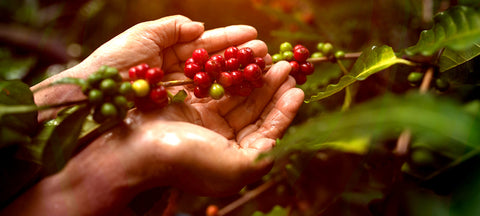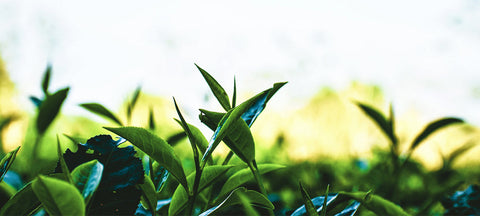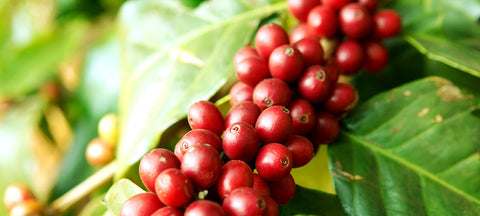Arabica Coffee (Coffea arabica)
Arabica coffee, scientifically known as Coffea arabica, is one of the most popular and widely consumed species of coffee plants. It accounts for approximately 60% of global coffee production, with the remaining 40% primarily coming from Coffea canephora, commonly known as Robusta. While Robusta contains more caffeine, Arabica is cherished for its sweeter, more aromatic, and smoother flavor profile.
Origin & Growth
Originating from Ethiopia, Arabica coffee has a rich history tracing back to the 15th century. It is now grown in coffee-producing regions around the world. The flavor of Arabica beans can vary significantly based on factors like soil quality, altitude, and climate. Higher altitudes and well-drained soils generally produce the best beans.
The Arabica plant grows naturally up to 15 feet (5 meters) in height but is usually pruned to around 6 feet (2 meters) for easier harvesting in commercial cultivation. The plant begins to bloom within a couple of years of planting, producing fragrant white flowers that eventually turn into ellipsoidal fruits. Each fruit contains two flat seeds—commonly known as coffee beans.
Botanical Traits
Arabica is genetically unique due to having two sets of chromosomes, which allows it to self-pollinate. This genetic stability means cross-pollination is rare, helping Arabica maintain consistency across generations.
Caffeine Content
Arabica contains less caffeine than Robusta. According to recent studies:
-
Arabica: 154 mg of caffeine per 100g
-
Robusta: 184 mg of caffeine per 100g
Despite its lower caffeine, Arabica is considered superior in taste, offering a more refined flavor and pleasant acidity. It also has ester essences, which contribute to its distinct floral and fruity aroma.
Freshness & Storage
Arabica coffee is best enjoyed fresh due to its delicate and dynamic nature. Purchasing in-season beans—similar to buying fresh strawberries—enhances flavor and aroma. For optimal results:
-
Grind the beans right before brewing to retain the full spectrum of flavor and aroma.
-
Avoid pre-ground coffee and long storage times.
-
Store beans in a cool, dry place—not in the refrigerator—to preserve freshness.








Comments (0)
There are no comments for this article. Be the first one to leave a message!
Please login to comment